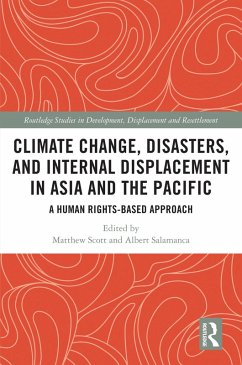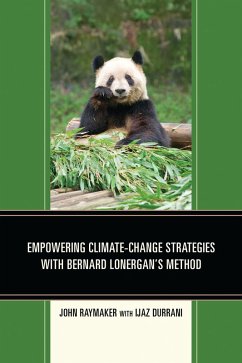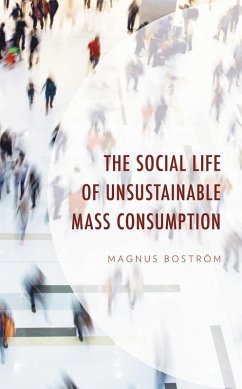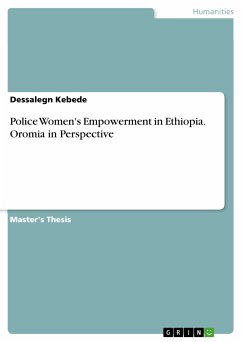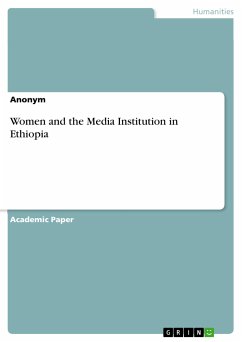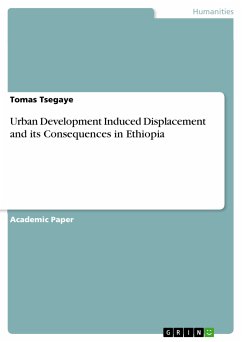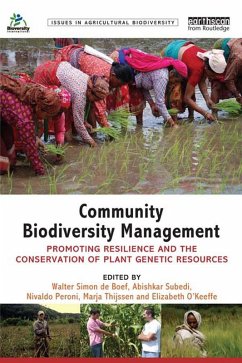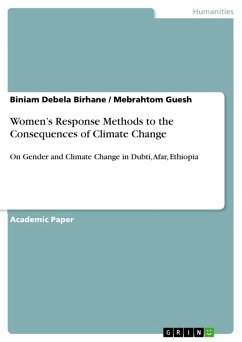
Women's Response Methods to the Consequences of Climate Change (eBook, PDF)
On Gender and Climate Change in Dubti, Afar, Ethiopia
Sofort per Download lieferbar
Statt: 17,95 €**
15,99 €
inkl. MwSt. und vom Verlag festgesetzt.
**Preis der gedruckten Ausgabe (Broschiertes Buch)
Alle Infos zum eBook verschenkenWeitere Ausgaben:

PAYBACK Punkte
0 °P sammeln!
Academic Paper from the year 2018 in the subject Sociology - Relationships and Family, Raya University, language: English, abstract: The present study focuses on the relationship between gender and climate change in Ethiopia. The majority of Ethiopian women are largely engaged in the agricultural sector, which is highly vulnerable to climate changes. This study aims at analyzing the determinants of women's response measures of climate change in the Dubti Woreda. This article designes as cross-sectional research design and employs qualitative and quantitative research approaches. Data is obtain...
Academic Paper from the year 2018 in the subject Sociology - Relationships and Family, Raya University, language: English, abstract: The present study focuses on the relationship between gender and climate change in Ethiopia. The majority of Ethiopian women are largely engaged in the agricultural sector, which is highly vulnerable to climate changes. This study aims at analyzing the determinants of women's response measures of climate change in the Dubti Woreda. This article designes as cross-sectional research design and employs qualitative and quantitative research approaches. Data is obtained from primary and secondary sources. Moreover, both the probability and nonprobability sampling techniques are employed. The result from the binary logistic model reveals that age, access to training, farming experience, access to credit service, radio and mobile services determines women's response methods to the consequence of climate changes. Finally, the article recommends for greater investment in women education and training to address the above-mentioned challenges. The impact of climate change is increasing from time to time. Climate change causes for floods, droughts, cyclones and desertification processes and this put the population of the world, especially developing countries at high risk and can undermine the development efforts to reduce poverty. The poor are the most vulnerable to climate change and women are among the greatest number share of the poor, because women constitute more than 70% of the overall worldwide population living below the poverty line, and this implies how many women are more vulnerable to the effects of climate change compared to other groups. Climate change has gender-specific implications in terms of response and there are structural differences between men and women through, for example, gender-specific roles in society, work and domestic life. Response strategies are uneven across and within societies. In relation to this, there are individuals and groups within all societies that have an insufficient decision to response of climate change, for example, in most African countries women in subsistence farming communities are disproportionately burdened with the costs of recovery and coping with drought. Furthermore, women in Sub-Saharan Africa have lower levels of education; they have smaller farms, less access to markets, credit and other inputs which also might be a factor limiting their response strategies to the consequence of climate change.
Dieser Download kann aus rechtlichen Gründen nur mit Rechnungsadresse in A, B, BG, CY, CZ, D, DK, EW, E, FIN, F, GR, HR, H, IRL, I, LT, L, LR, M, NL, PL, P, R, S, SLO, SK ausgeliefert werden.




